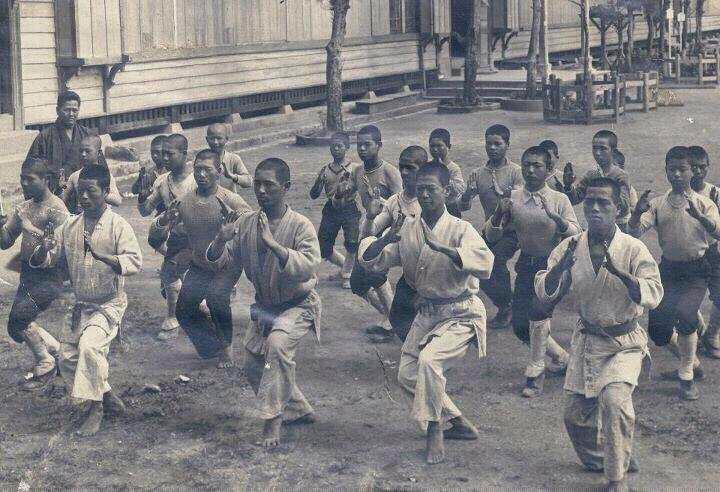
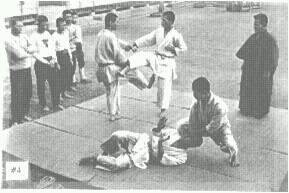
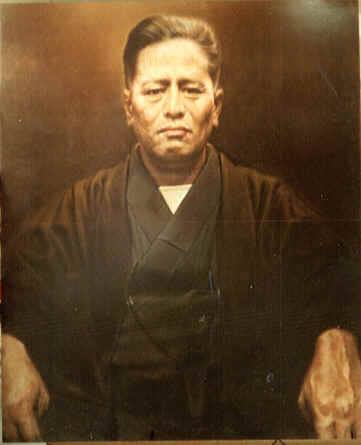
Founder Goju-Ryu Karate-Do
Chojun Miyagi , founder of Goju-ryu, had started studying karate at eleven years of age. When Miyagi was fourteen Master Higaonna accepted him as a student.
Kanryo Higaonna (1853-1915), had studied Chinese boxing the Chinese city of Fuchou under the tutelage of Ryu Ryu Ko for fourteen years.
Miyagi sensei studied under Higaonna until the master’s death in 1915. Miyagi travelled on two occasions after Higaonna’s death to China retracing his master’s previous visits
Goju-ryu Karate derived from two contrasting terms – GO (hard) and JU (soft) was the first organisation to be considered a style.
GOGEN YAMAGUCHI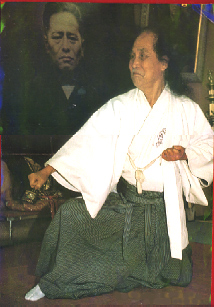
Founder Goju-Kai Karate-Do
Gogen Yamaguchi was born in Kagoshima in 1909. During his early school days he began karate under Murata, a Goju exponent from Okinawa.
In 1931 he began to train under Master Chojun Miyagi and six years later was entrusted to head and teach Goju-Ryu in mainland Japan. He received the title of “Ju Dan Hanshi” (Tenth Dan) from Master Chojun Miyagi.
As a law student, Yamaguchi established his first karate club at the Ritsumeikan University in Kyoto. It was during this period that Yamaguchi created the first stages towards what is known as jiyu kumite (free fighting) and established rules to decide the winner of a match.
Under his leadership the I.K.G.A. (International Karate-do Goju-kai Association) was formed and membership now includes over 50 countries.
Gogen Yamaguchi a legendary karate master past away in 1989 at the age of 81 years. Never before seen photographs and film of the master are included in this DVD making it a collector’s special. Check it out and put one in your shopping cart.
Saiko Shihan GOSHI YAMAGUCHI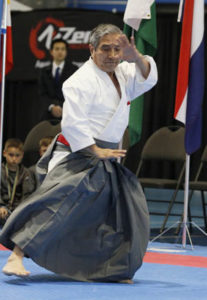
President and Chief Instructor IKGA
No one is more adept at portraying the powerful bety of Goju-Ryu karate than Saiko Shihan Goshi Yamaguchi. The youngest son, he is a true master and a worthy successor to his famous father.
Despite his untiring efforts travelling constantly throughout the world to promote Goju-Kai karate, he has created the bunkai that captures the unique character of each of the kata.
A World Karate Federation referee he can accept the development of karate as a sport but realises the danger to the deeper meaning of the martial arts if one trains only to win in competition bouts.